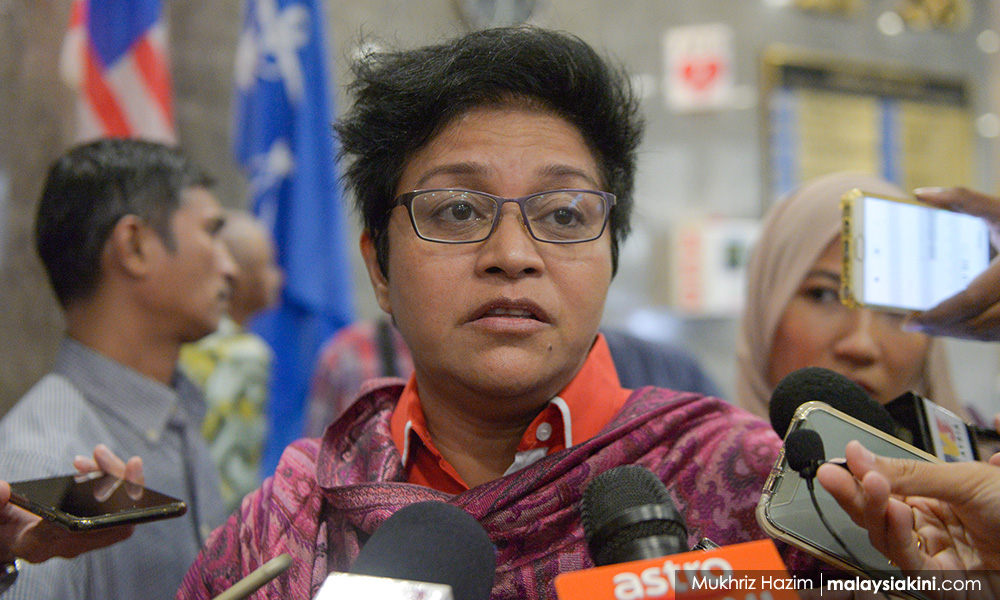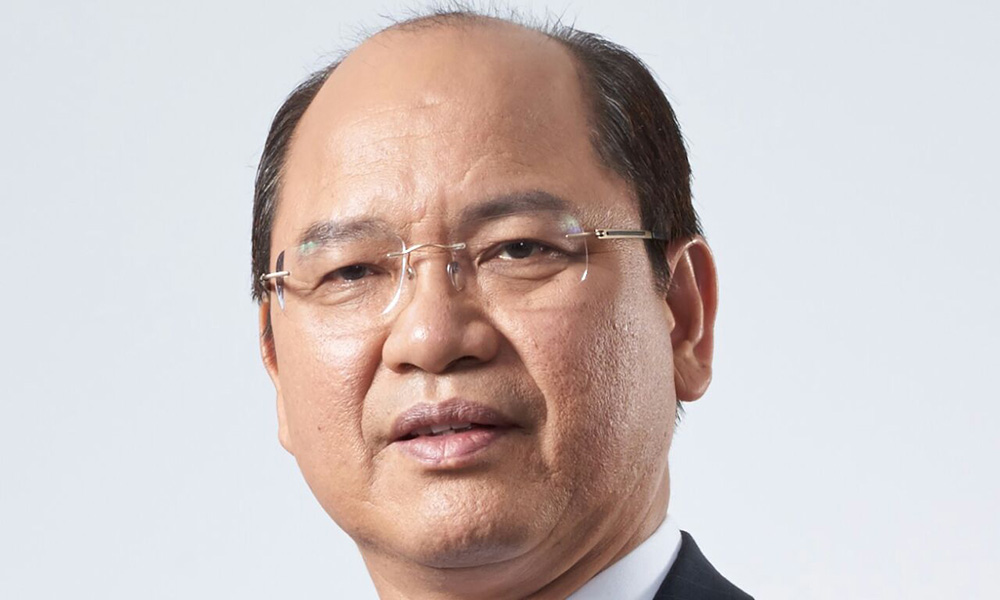Reading the title, some readers would probably start typing their comments that I am either mad or compromised to say there are positive consequences - and six of them! - of something as bad as the Sheraton Move.
I promise I would not take any legal action over such comments, not even for damage of RM5. As both my sanity and conscience are intact, I can see wild casual comments often simply just reflect character of the commenters and nobody else.
Since today is the first anniversary of the collapse of the first non-BN government, I am sure you will read a lot about how bad the Sheraton Move is. Let me be useful in showing you what is not often told - because the world is complex, even a bad event like the Sheraton Move may have positive unintended consequences, and I can count at least six of them.
1: End of the Malay Unity myth
During Pakatan Harapan’s 22 months, Malay-Muslim nationalists painted a simple picture of living hell: the government was controlled by non-Malays especially the “evil” DAP because the Malay-Muslims were divided.
By parliamentarians' composition, Muhyiddin Yassin’s government is 96 percent bumiputera and 85 percent Muslim, containing four out of seven Muslim-dominated parties (Umno, Bersatu, PAS, Parti Pesaka Bumiputera Bersatu) in the whole country. But Umno, Bersatu and PAS are bickering everyday like three brothers after the same love interest, the Malay voters. They are anything but united.
Every day under the Muhyiddin’s government is like a DidikTV programme on realpolitik, or a rehab programme on our addiction of communalism. Maybe the prime minister is after all a “Malaysian First” under-cover.
2: Umno talking about reforms now
As Umno taking on Perikatan Nasional especially Bersatu in the 15th general election is increasingly inevitable, not least to prevent its absorption by the latter, Umno has no choice but talking not just about moderation, but also parliamentary democracy, press freedom and rule of law.

Many Harapan supporters may dismiss reformist talks by Umno leaders like Mohamad Hassan and Azalina Othman Said as pretentious and hypocritical, but isn’t it good that Umno - effectively a quasi-opposition now as MPs are given opposition-class of constituency allocation - champions democracy even if it is out of self-interest instead of conviction?
Like Umno in 2018, Mexico’s Institutional Revolutionary Party (PRI) and Taiwan’s Kuomintang (KMT) lost power after decades of one-party rule with elections. Both PRI and KMT returned to power in 2012 and 2008 after reforming themselves.
For democratisation’s sake, it is better for Umno to follow PRI’s and KMT’s footsteps, rather than being absorbed by Bersatu (as both Dr Mahathir Mohamad and Muhyiddin hoped) or surviving as a nasty opposition as it was under Muafakat Nasional.
3: Chopping incumbency advantage is finally on agenda
One key reform that Harapan was most reluctant to do was reducing incumbency advantage. Its leadership and grassroots were not keen to treat the opposition fairly, for fear that a more level playing field would help Umno and PAS to win back power. Of course, it wont help Mahathir’s plan to absorb Umno through defection.
This selfish mentality resulted in some half-hearted pittance reforms: opposition MPs were given constituency allocation, but only 1/5 and later 1/15 of that for government MPs; 10 select committees were set up, but 69 percent of opposition MPs were left out.
Of course, all these came back to bite Harapan, especially once they were back to opposition.
As counter-coup attempts by both Mahathir and Anwar Ibrahim fail, realism has grown in Harapan demanding equal constituency funding and parliamentary reform as conditions for a ceasefire.
While Muhyiddin rejects such offers thinking he can lord over both opposition and Umno, Umno at the state level has agreed.
In Perak, Umno’s new menteri besar Saraani Mohamad entered a Confidence and Supply Agreement with Harapan, providing the opposition assemblypersons with equal funding and district-level policy-making roles.
Umno-led state governments in Johor and Perlis are also raising opposition lawmakers’ allocation.
One may cynically see this as a prelude for Umno-Harapan cooperation after GE15, but the fact remains that chopping incumbency advantages, which Harapan was reluctant to do, is now on agenda.
4: Politics of policy may replace politics of principles
As parties are coming to sense that hung parliament and post-election coalition governments are likely the new norms to stay after GE15, they are slowly moving away from "politics of principles" that see things in uncompromisable black and white, especially in communal terms.
To differentiate from their rivals in election and be able to team up to share power in government, parties also move towards "politics of policies".
Unlike principles, policies are technocratic and complex, which not only allows but sometimes necessitates compromises. If party A proposes a tax rate of 10 percent and party B only five percent, both parties can claim victory to their constituency if they form a coalition government that settles for 7.5 percent.
As GE15 draws near, expect Harapan to excite middle-ground voters with state-level reformist policies than just attacks on Muhyiddin’s backdoor government.
5: Decentralisation as new coalition builder
As national parties become fragmented and the pandemic shows the limitation of centralisation, decentralisation may emerge as new coalition builder, justifying post-GE15 realignment.
When no party can dominate Putrajaya, but most major parties may dominate some states as their power base, it makes sense for all parties to agree on decentralisation.

While decentralisation has often been narrowly framed as a divide between the West Malaysian centre and the East Malaysian periphery, new voices have slowly emerged like that of Tuaran MP Wilfred Madius Tangau who calls for East and West Malaysian states to join force for decentralisation.
GE15 may also produce different post-election coalition governments at the federal level and also across different states, thus decentralising even political parties.
In the best scenario, decentralisation may stabilise and depolarise Malaysian politics.
6: Rising rejection of privileges in ‘dua darjat’ society
As the Muhyiddin government is too weak to discipline any misbehaving or under-performing minister or MP, that even charging Ahmad Zahid Hamidi’s daughter or Annuar Musa for breaking the pandemic SOP needed the AG’s approval, it makes privileges and impunity more hated than ever before amongst Malaysians, most significantly, the Malays.
As the “dua darjat" (two-classes) society reality is so much at your face, it gives “equality” a new political significance. Instead of an “inter-ethnic” threat posed by “ungrateful minorities”, it now breeds an “intra-ethnic” discontent amongst Malays. There is no better time to sell “rule of law” and build a social coalition for “equality before law” even if Malaysians continue to disagree over “equality before policy”.
Look at both gains and losses
I am not at all suggesting you should celebrate the Sheraton Move.
It has brought about many grave damages in a chain reaction: an abrupt end of the first non-BN government, Parliament’s emasculation in its expressing confidence (or lack of) of the Executive, taming of government backbenchers with fat jobs at GLCs or statutory bodies, haphazard management of both the pandemic and the economy, selective prosecution and impunity, and now the emergency.
I merely suggest you to also look at the unintended and unexpected gains, which might have been overlooked if you indulge in despair or self-righteousness.
Instead of incessantly calling Muhyiddin’s government “backdoor”, Harapan supporters may want to get down of their moral high horse to realistically assess the new realities and new normal, as the time to choose next government from “front door” is getting near, less than 30 months at most.
WONG CHIN HUAT is an Essex-trained political scientist working on political institutions and group conflicts. Mindful of humans’ self-interest motivation while pursuing a better world, he is a principled opportunist. - Mkini
The views expressed here are those of the author/contributor and do not necessarily represent the views of MMKtT.



No comments:
Post a Comment
Note: Only a member of this blog may post a comment.